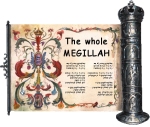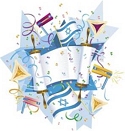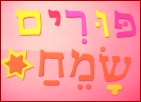|
The Scriptures state that the holiday of Purim "should be remembered and kept throughout every generation, every family, every province, and every city; and that these days of Purim should not fail from among the Jews, nor the memorial of them perish from their seed" (Esther 9:28). According to Jewish tradition, we remember the miracles of Purim by means of four mitzvot (blessings):
- Honor the Appointed Time.
It is a mitzvah (i.e., blessing) to observe the holiday of Purim on Adar 14 (which begins at sunset on the 13th). This is based on Esther 9:19: "Therefore the Jews of the villages, who live in the rural towns, hold the fourteenth day of the month of Adar (ūÖūĢų╣ūØ ūÉųĘū©ų░ūæų╝ųĖūóųĖūö ūóųĖū®ūéųĖū© ū£ų░ūŚūōųČū®ūü ūÉų▓ūōųĖū©) as a day for gladness and feasting, as a holiday, and as a day on which they send gifts of food to one another." For Jews living in Israel, Purim is celebrated as Shushan Purim on Adar 15 (Esther 9:18). The Scriptures clearly state that we are to "keep these two days according to their writing, and according to their appointed time every year, and to remember (ū¢ūøū©) the days of Purim for all generations" (Esther 9:27-28).

- Perform Acts of Tzedakah and Kindness.
It is a mitzvah (blessing) to perform additional acts of kindness before the holiday of Purim begins. These include mishloach manot (ū×ų┤ū®ūüų░ū£ūĢų╣ūŚųĘ ū×ųĖūĀūĢų╣ū¬), the "sending of portions" to friends (often anonymously or while in costume), and mattanot la'evyonim (ū×ųĘū¬ų╝ųĖūĀūĢų╣ū¬ ū£ųĖūÉųČūæų░ūÖūĢų╣ūĀų┤ūÖūØ), the giving of gifts (tzedakah) to the poor. (Fasting the daylight hours before Purim (ta'anit Esther) is also considered a blessing.)

Shalach Manot basket
- Hear the Megillah Read.
It is a mitzvah to hear the Scroll of Esther read twice on Purim: first during the evening service (usually followed by a costume play and oneg) and again during the following morning's service. (If you cannot attend services, reading the Book of Esther will suffice.) Before hearing or reading the Megillah, we recite the customary Hebrew blessings.

On Purim evening (i.e., erev Purim) it is a custom to give machatzit ha-shekel (half a shekel) as charity to the poor before the reading of the Megillah. During the reading, we "blot out" the sound of Haman's name by shouting or by using "groggers" (Haman's name occurs 54 times in the story). According to the Talmud (Megilah 7b), a person should be so merry that he doesn't know the difference between "cursed is Haman" (arur Haman) and "blessed is Mordechai" (baruch Mordechai) - "ad dela yada bein arur Haman le'varuch Mordechai." In Israel, special carnivals called Adloyada ("until you don't know") occur during Purim.
- Enjoy the Holiday Meal.
It is a mitzvah to eat a special Purim meal (seudat Purim), usually after minchah (afternoon) services on the 14th. Many children dress up in elaborate masks and costumes for the supper. Like other holidays we light Yom Tov candles and recite kiddush before partaking of the meal (Mishna Berura 695:9). Often an oversized challah, sometimes shaped as a Star of David, is baked for the occasion.

Since Purim is a time of irony and fun, some people put on a farcical "Purim Seder," with a "Purim Rabbi" officiating the ceremonial meal and generally making a mess of things. It is also customary to eat festive foods at this time, especially the three-cornered pastries called "Hamantaschen" (ūöū×ū¤ųŠūśūÉųĘū®ū¤), or "Haman's Ears."

Note: According to the Talmud (Megillah 7a), you should drink so much wine during the meal that you can no longer coherently know the difference between 'Cursed is Haman,' and 'Blessed is Mordechai.' This is sometimes called "ad lo yadah" - "until you don't know...." Needless to say this tradition is not a requirement and is in fact not recommended for the holiday celebration.
The Midrash Esther says that Purim, unlike many of the other holidays, will be celebrated even after the final redemption after the End of Days. Maimonides says that the Book of Esther will enjoy the same status as the Torah of Moses in the world to come (Mishneh Torah, Megillah). This is because the story of Purim -- i.e., God's covenantal faithfulness and defense of His people -- will be magnified in the deliverance that leads to the establishment of the Messianic Kingdom upon the earth. Indeed, the Second Coming of the Messiah will be regarded as the final fulfillment of Purim!
ūżų╝ūĢų╝ū©ų┤ūÖūØ ū®ūéųĖū×ųĄūŚųĘ / Purim Sameach
"Happy Purim!"
|







